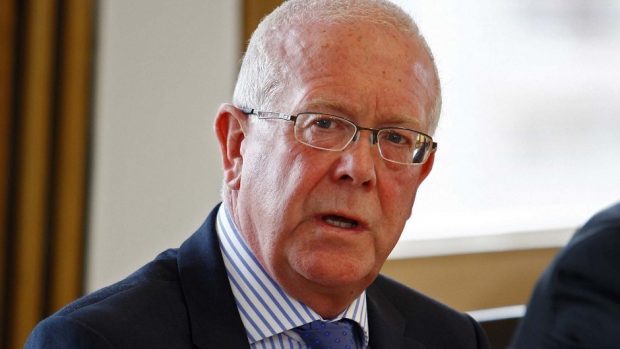Scotland’s retailers yesterday attempted to persuade Holyrood politicians to break their budget deadlock by warning that failure to pass the £33billion package would cause economic damage.
With Finance Secretary Derek Mackay struggling to find enough opposition support to get his budget through Holyrood, the Scottish Retail Consortium (SRC) urged politicians to take a “collegiate approach”.
The intervention by the SRC’s David Lonsdale came as the SNP convener of the Scottish Parliament’s Finance Committee Bruce Crawford warn on twitter that opposing the budget would risk an “unwanted” Scottish election.
“Opposing it (the Budget) would mean voting down additional spending on our NHS, education, welfare and local services; causing serious disruption and risking unwanted Scottish Parliament election,” Mr Crawford said.
Thursday sees MSPs vote on the 2019/20 package for the first time since its details were announced by Mr Mackay at the end of last year.
Mr Lonsdale said while the plans that have been put forward are “far from perfect”, retailers supported some of its measures including town centre funding.
With the UK’s departure from the European Union just two months away, he said more uncertainty would be damaging.
Mr Lonsdale said: “In the current volatile economic and political climate, businesses need as much certainty as possible. That’s why it’s crucial MSPs take a collegiate approach to ensure a Budget which supports economic growth is passed without delay.
“Robust debate and scrutiny over the coming days is both right and necessary, however any failure to pass a Budget in good time would add a thick layer of uncertainty at an already challenging time for many businesses.”
Traditionally Green MSPs have backed the minority SNP administration’s budget for the last two years.
This year, however, Green co-convener Patrick Harvie has claimed the “hugely damaging” proposals for the coming year would lead to massive cuts in local services.
The Budget includes an additional £730million investment in health services north of the border and £180million aimed at boosting attainment in schools – with £5billion of capital investment including £1.7billion spending on transport infrastructure and a £50million town centre fund to support struggling high streets.
Meanwhile, tax changes outlined in the plans will increase differences between Scotland and the rest of the UK.
From April, taxpayers south of the border will only pay income tax at the 40p rate if they earn more than £50,000 a year – while in Scotland it is proposed people will pay the higher rate of 41p on earnings above £43,430.
